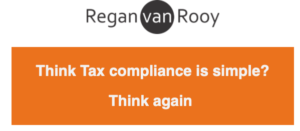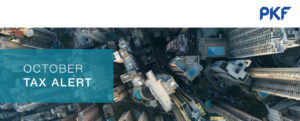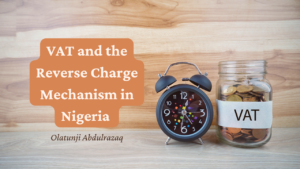Expenditure relating to deferred accruals
- DLA Cliffe Dekker Hofmeyr
- South Africa
- September 5 2014
Background
The taxpayer operated a mine. Firstly, it would extract mineral ore from the earth, and secondly, by smelting and other processes, it would extract a concentrate (containing the minerals) from the ore.
The taxpayer sold the concentrate to a subsidiary company. In terms of the agreement with the subsidiary, and in respect of the sale of concentrate in any particular month, the purchase price would only be finally determined five months later.
Section 24M of the Income Tax Act, No 58 of 1962 (Act) allows a taxpayer to include in its gross income an amount accruing to it in a particular tax year only in the tax year that the amount is finally determined.
Section 24M of the Act therefore applied to the sales made by the taxpayer in the last four months of each tax year, as the purchase price of those sales would only be determined in the following tax year.
Accordingly, in the 2007 to 2009 tax years, the taxpayer deferred the inclusion in its gross income of the purchase price for concentrate (in respect of the last four months of each year) to the following tax year. However, the expenditure incurred in respect of such sales was claimed as a deduction by the taxpayer under s11(a) of the Act in the tax year that it was incurred, and not in the tax year that the relevant amounts were included in the taxpayer’s gross income. The expenditure consisted of costs relating to the extraction of the ore from the soil, costs relating to the concentrate process, audit fees, administration fees and costs relating to the drying of the concentrate.
The South African Revenue Service (SARS) assessed the taxpayer and disallowed the deduction of the said expenses in the year that it was incurred, in proportion to the amounts of gross income deferred.
SARS was of the view that s23F(2) of the Act applied, which provides that expenditure relating to the ‘acquisition’ of ‘trading stock’ (which is generally deductible), must be disregarded to the extent that any amounts relating to the disposal of that trading stock do not accrue during the same year that the expenditure is incurred.
SARS also imposed 50{780f53c297e2c008074d23b865a0ce0b35a4f08852d8e1e49466a5a902c4e44e} additional tax under s76(1)(c) of the Act.
Judgment
The taxpayer argued that the ore and concentrate did not constitute ‘trading stock’ and there was no ‘acquisition’ of such ore or concentrate. Section 23F(2) of the Act could therefore not apply.
Paragraph (a)(i) of the definition of ‘trading stock’ in s1 of the Act provides that trading stock is anything:
‘Produced, manufactured, constructed, assembled, purchased or in any other manner acquired by a taxpayer for the purpose of manufacture, sale or exchange by him or on his behalf.’
The parties did not rely on the other parts of the definition of ‘trading stock’.
The court found that the ore could not constitute trading stock, apparently because the ore was mined from the earth, and not intended for manufacture, resale or exchange but for extracting minerals therefrom, which also constitutes mining. However, the concentrate did constitute trading stock.
The court also had to interpret the meaning of the word ‘acquisition’ as used in s23F(2) of the Act.
The taxpayer argued that the word ‘acquisition’ as used in s23F(2) refers to acquiring ‘ownership’. Because the taxpayer became the owner of the minerals (keeping in mind that the concentrate consists of the minerals) at the time the ore was severed from the land, it could not be said that the costs relating to the extraction of the concentrate from the ore constituted expenditure incurred in respect of the ‘acquisition’ (or becoming owner) of the concentrate.
The court held that the ore, when passed through the concentrator, is transformed into a product with a higher value, and becomes trading stock. Also, once the ore is transformed into concentrate, it can be said that there has been an ‘acquisition’ of the concentrate.
The court thus held that s23F(2) may only be applied in respect of expenditure relating to the extraction of the concentrate from the ore, but not the extraction of the ore from the land. Both processes are however mining processes for tax purposes.
For s23F(2) to apply in respect of expenditure relating to concentrate, there must be a causal connection between the expenditure and the ‘acquisition’ of the concentrate. In the current matter the court held that the audit fees, administration fees and costs relating to the drying of the concentrate could not be disregarded under s23F(2) of the Act because there was no causal connection between these costs and the acquisition of the concentrate – these costs were incurred after the concentrate had already been produced. The other costs relating to the concentrate process would however be subject to s23F(2) of the Act.
The court ordered the assessments to be sent back to SARS for reconsideration.
Cost order
Another interesting feature of this case was that, as part of the capturing, processing and administrative process, arithmetical errors were made by SARS in the assessments in the amount of approximately R160 million. During the time leading up to the trial, SARS had consistently refused to correct the errors. The court noted that:
‘[42] The capturing, processing and administrative errors attracted negative business consequences, reputation risks, recurring negative reporting in the annual reports of the Appellant, and cast a dark pall over the management efficacy of the appellant. They also required the Appellant to report contingent liabilities and raise provisions in their financial statements. This is an unfortunate situation with very grave consequences to the future viability of the appellant, and to the reliance that future investors would place on the financial statements of the Appellant. This potential impairment on the reputation of the Appellant should be brought to the Respondents attention for correction.
[51] In my view there was an inordinate delay by the respondent to deal with the error of some R160 million. This is a large amount and reflects negatively on the Appellant’s financial profile in the annual financial statements. The Appellant was forced to raise it in correspondence and in the grounds of appeal. The respondent failed to deal with it in the statement of appeal’
As a result, the court ordered SARS to pay 50{780f53c297e2c008074d23b865a0ce0b35a4f08852d8e1e49466a5a902c4e44e} of the taxpayer’s costs up to the date of the pre-trial conference.






